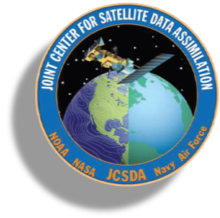The new interpolator hasn’t just made the code slightly more efficient - it has quadrupled the run speed for a 3DVar experiment with GSI static B.
From Space to Forecast: Harnessing TEMPO’s Hourly Observations with JEDI for Next-Gen Air Quality Monitoring and Prediction
CRTM to Work With Upcoming NASA PolSIR Mission
The Polarized Submillimeter Ice-Cloud Radiometer (PolSIR) is an upcoming NASA satellite mission scheduled for launch in 2027, designed to study the elusive role of ice clouds in Earth’s weather and climate systems. In support of this innovative satellite mission, the PolSIR sensor will be simulated by the Community Radiative Transfer Model (CRTM).
Showcasing the Assimilation of TEMPO NO2 Data in the JEDI System with the GEOS-CF Model
In a recent collaborative effort between the Joint Center for Satellite Data Assimilation (JCSDA) and the Global Modeling and Assimilation Office (GMAO), we have successfully integrated the newly released Level 2 TEMPO NO2 products into the JEDI data assimilation system using the GEOS-CF model at C360/~25km resolution (the background and the analysis are at the same resolution). This initiative demonstrates the enhanced capability to monitor and produce analyses of atmospheric composition less than 24 hours after official product release, focusing on NO2, a significant pollutant and tracer for air quality.
Recent Fixes in JEDI Making a World of Difference
Bugfix In Halo Updates Highlights Cooperation Between JCSDA Partners
JCSDA's Q4 Review Highlights Exciting Progress Across All Teams
On April 18 the JCSDA team met with our partners at NASA, NOAA, US Navy, US Air Force, and the UK Met Office to celebrate the last quarter of accomplishments and discuss goals for the upcoming quarter and AOP year. Q4 accomplishments included several important bugfixes, new sensors, and several experiments added to SkyLab v8!
Brief Report on the Status of GEOS-JEDI
The first phase of transitioning the NASA GMAO GEOS atmospheric data assimilation capabilities to JEDI involves the replacement of the Grid-point Statistical Interpolation (GSI) with a corresponding JEDI analysis. This includes taking JEDI's Unified Observation Operator (UFO), its underlying dependencies, and the JEDI solver that enables a hybrid 4DEnVar strategy similar to what is used in the current GEOS-GSI system.
JEDI Team Takes Another Step Toward Operational Functionality
Last week a combined JCSDA team from the core staff, NOAA, NASA, and the UK Met Office conducted a code sprint for Variational Bias Correction (VarBC) in JEDI’s Unified Forward Operator (UFO). The code sprint worked towards adding the ability to apply bias correction to observations by record, like those from aircraft and ships, in addition to channels.
NASA Data Assimilation Team Hits Major Milestone for JEDI Implementation
After more than a year of work on replicating current data assimilation outputs with JEDI, NASA’s Atmospheric Data Assimilation team at the Global Modeling and Assimilation Office (GMAO) has successfully completed a major milestone in the path toward JEDI implementation by passing the acceptance criteria for JEDI Unified Forward Operator (UFO), matching all JEDI/UFO input/output pairs to their existing model. This is a huge step forward for putting JEDI into operational use, laying the foundation for not just transitioning to JEDI but for adding capabilities that don’t exist in the current system.
The project team are the first JEDI developers in the NASA system, spearheading work that no one has done before and learning how to translate the old data assimilation system’s functions to JEDI. Along the way they contributed a great deal back to the JEDI repositories at JCSDA, finding bugs and inefficiencies as well as adding forward operator use-cases and improvements.
“We’re really proud of the team, and they’ve worked very hard,” says Dr. Ron Gelaro, lead scientist for atmospheric data assimilation at GMAO and NASA/GMAO representative on the JCSDA Executive Team. “This has really advanced our effort [with JEDI].”
The whole team went out for dinner last month to celebrate their milestone accomplishment, a well-earned treat after months of dedicated progress. With the observation inputs and outputs now matched, they are ready and excited to start exploring all the advancements JEDI can bring to their current modeling system.
“They did not only the configuration that NASA needed, but contributed a lot back to the Joint Center,” says Dr. Gelaro. “Thanks to them we’re very advanced in this area compared to most groups.We’re very proud of them for that.”
Congratulations to the NASA Atmospheric Data Assimilation Team!
Learn more about the project in this interview with Dr. Gelaro











